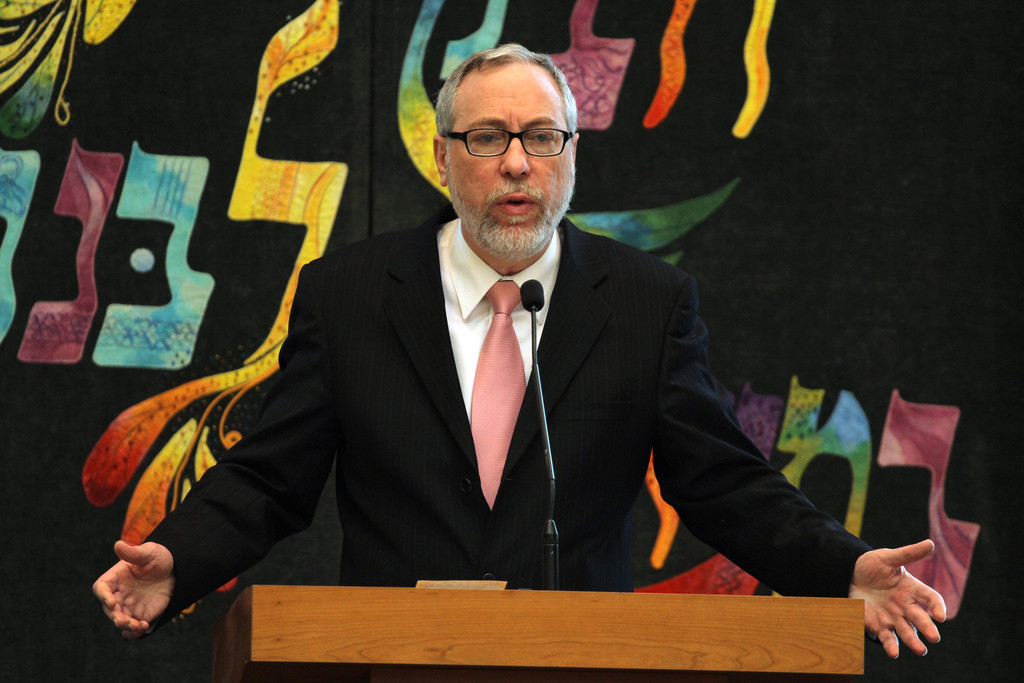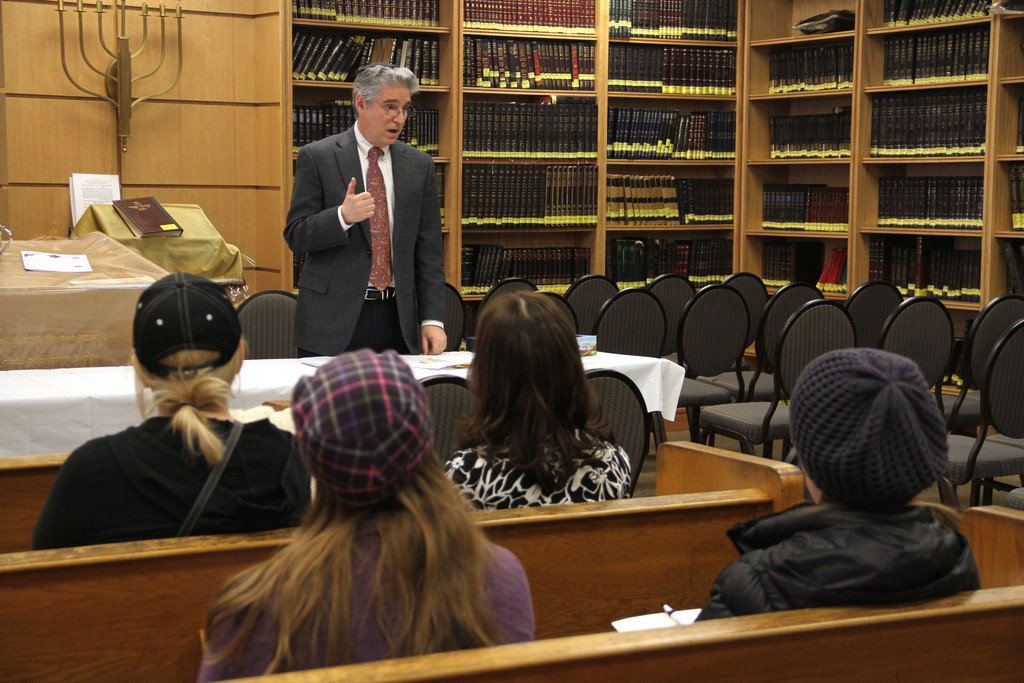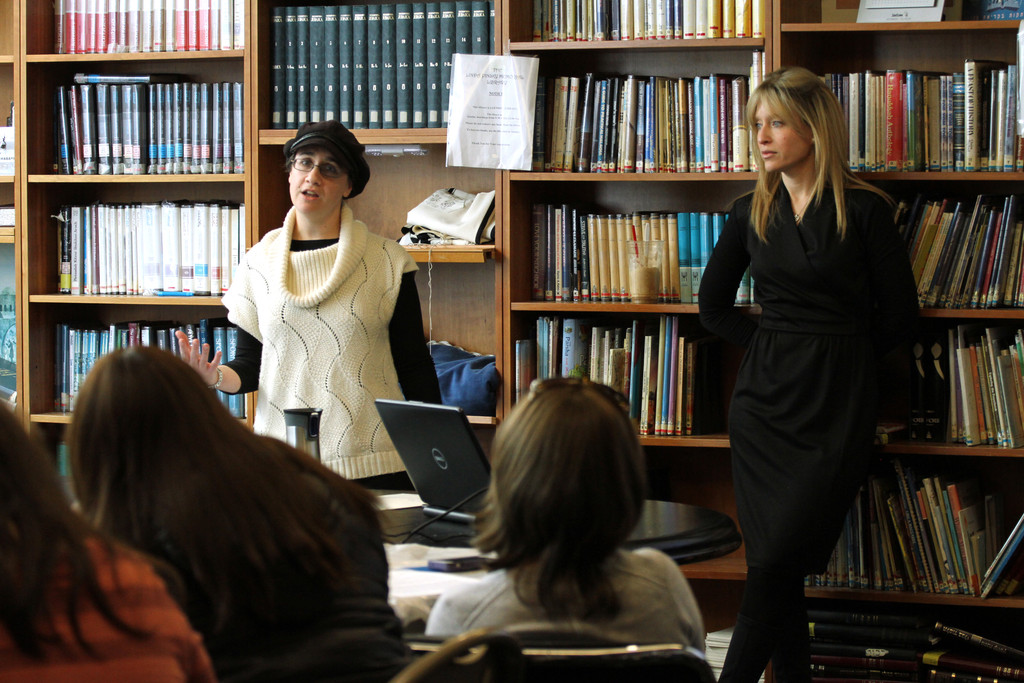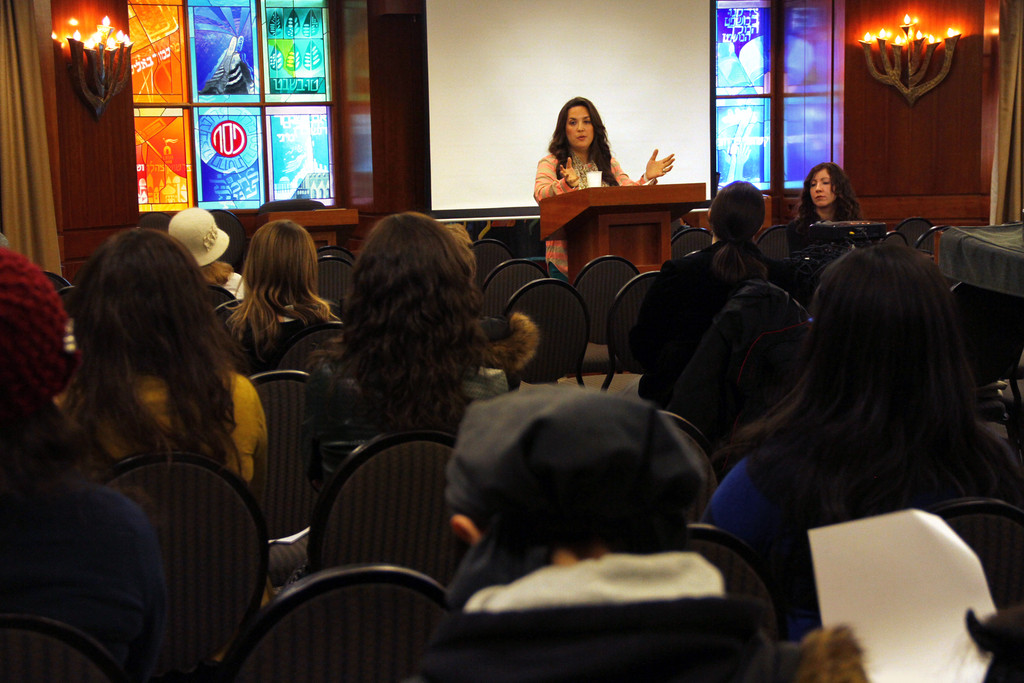Yoatzot halacha and rabbis join docs at women’s health-halacha event
Close to a 100 women heard health professionals, rabbanim and yoatzot halacha (Jewish legal advisers), discuss the overlap and symbiosis between issues of women’s health and halacha (Jewish law), in a day-long seminar at the Young Israel of Woodmere.
Five Towns yoetzet halacha Lisa Septimus stressed that although women prefer to keep issues of family purity private, they should converse with others to discover opportunities for growth and to avoid the suffering that might accompany keeping silent.
She said that the YIW forum enables women to “grow from the experience and wisdom of others, to learn the laws of nidah (family purity), enhance marital life [and] open conversations and educate on important topics.”
Talks covered obesity surgery and plastic surgery and their halachic aspects, contraceptive choices from a medical and halachic standpoint, challenges in fertility, perimenopause and menopause, breast cancer, postpartum depression, marital intimacy, working on marriage, and the medical and halachic issues in freezing eggs.
A series of young adult discussions dealt with when a young woman should have her first gynecological visit, a Torah and medical perspective on sexuality, and developing positive relationships and identifying red flags.
As information was conveyed, presenters stressed the importance of consulting with health professionals on individual questions of health and with rabbinic authorities on issues of halacha.
Avital Weissman, a yoetzet halacha based at the Young Israel of Plainview, discussed the halachic aspects of family purity while Dr. Rivkie Penstein-Hirt, a board certified obstetrician gynecologist in Hewlett and assistant clinical professor of obstetrics, gynecology and reproductive medicine at Mt. Sinai School of Medicine, discussed the medical aspects. Hirt covered the pros and cons of various methods of birth control from a health and pregnancy standpoint — including hormonal contraception including the pill, ring, patch and implants, IUD and barrier methods — while Weissman discussed their halachic implications, heterim (Jewish legal permission) for their use, bedikot, and nidah questions.
Psychiatrists Dr. Margo Spitzer of Lawrence and Dr. Lisa Bogdonoff of Cedarhurst discussed “postpartum blues” as compared to postpartum depression.
Postpartum blues are within normal parameters and should go away with family support but should be watched so they do not develop further, whereas postpartum depression is medically-defined depression with symptoms including loss of appetite, tiredness, loss of interest, feelings of guilt, preoccupation with thoughts of death and an inability to function, and should be treated with psychotherapy and/or medicine, they said.
Psychosis is a “real break with reality, you can’t rationally talk with the person; it has to be treated to protect the mother and the baby,” said Spitzer. “Don’t pooh-pooh it. If it does not go away within two weeks, the patient should get assessed. There’s nothing to be embarrassed about. Just as you can’t see high blood pressure, you can’t see depression. It’s a medical condition.”
Dr. Michael Salamon, who spoke on “how relationships form and how to make them stronger,” told The Jewish Star that “opposites do not attract in relationships — similar, though not identical, personalities are attracted to one another.”
“Keeping relationships healthy and strong requires an understanding of our expectations,” he said. “Regular date nights, daily communication and having fun together are the underlying factors for happiness. Every relationship has tough patches but with a bit of effort, most can be overcome and grow.”
The closing session dealt with the medical and halachic issues in freezing eggs, with a medical/rabbinic panel of Rabbi Ariel Rackovsky from the Irving Place Minyan in Woodmere; Rabbi Yehuda Septimus from the Young Israel of North Woodmere; Rabbi Dr. Aaron Glatt, assistant to the rabbi at YIW and chief administrative officer at Mercy Medical Center, and Dr. Joshua U. Klein a reproductive endocrinologist and fertility specialist.
Klein said that freezing eggs is no longer considered experimental, and that about 90 percent of frozen eggs survive. Rabbi Glatt said that although the requirement of having children is a commandment on men, women are allowed to have the procedure if they want to and that he is “unaware of any poskim (Jewish legal decisors) that say it is forbidden.” Rabbi Glatt conceded that questions have been raised as to whether this is a “slippery slope” of women putting off having a family to have a career and, if so, will it delay their getting married and might it lead to women having children without husbands.
Rabbi Rackovsky called the technology a “tremendous source of nechama,(comfort)” knowing that the option to have children exists.
Rabbi Glatt responded to a question that eggs, sperm and even a fertilized egg outside of the body are not considered life halachically, explaining that this is why stem cell research is permitted.
Rabbi Septimus stressed the need to help people find shidduchim (matchmakers) to help the singles we know find and secure healthy relationships.
Dr. Adina Burnstein-Saperstein, who attended the talk on menopause by Dr. Heather Applebaum and Yoetzet Bracha Rutner, said their presentation posited that it is a “normal physiological thing that happens and is not a disease.” They covered what to expect — physiologically, anatomically, treatment options, risk and benefits — and said that menopause can take five to ten years but “women should maintain a happy, healthy, active life.”
Lilach Saperstein commended the pairing of a medical professional and religious leader at every session and found the presentations to be “balanced and fair.”
Naomi Gez came to the conference from Brooklyn and praised the “high level” and “openness” of the talks. “I am proud to be a Jewish woman,” she said. “It’s part of our identity and they have an answer for everything. We can discuss any topic; no topics are taboo. It’s a living Torah, with all aspects of life.”
Many of the sessions at the February conference ran simultaneously, requiring participants to choose.
Lisa Septimus noted after the conference that they hope to present a similar event “on this scale” once a year.

 51.0°,
Fog/Mist
51.0°,
Fog/Mist 











